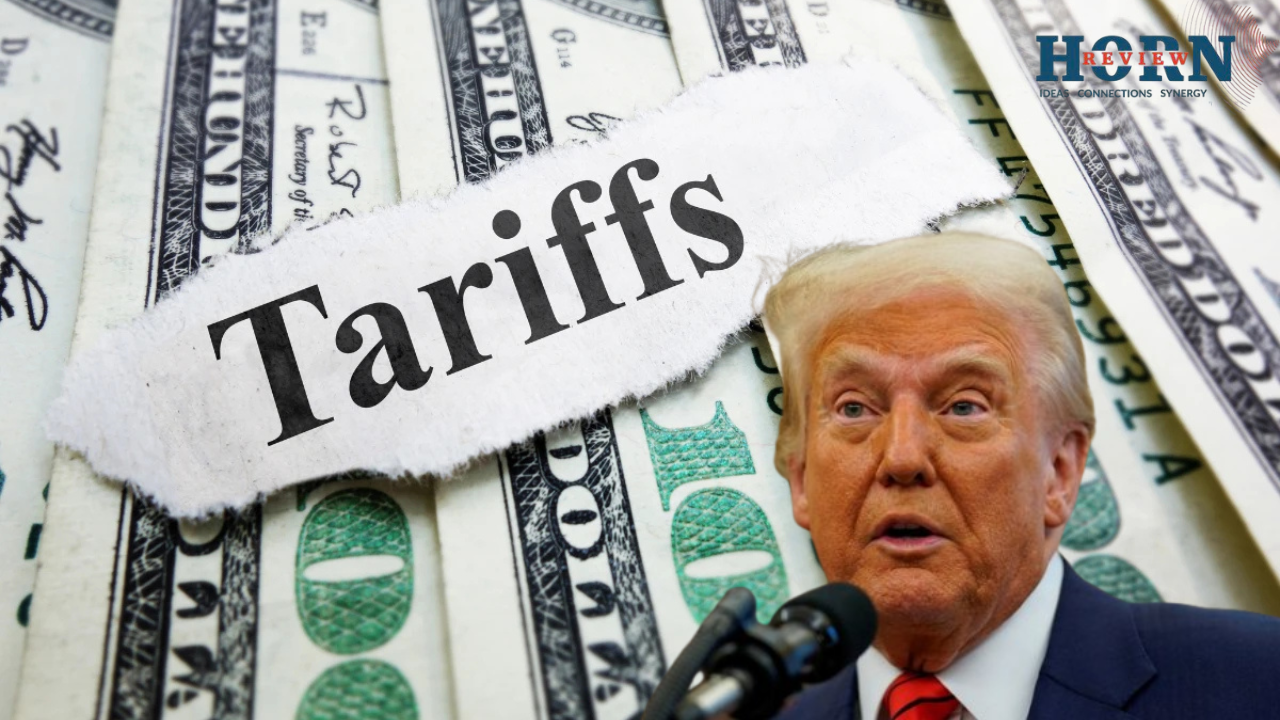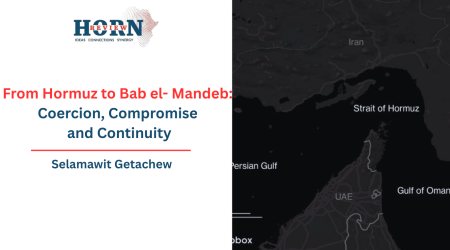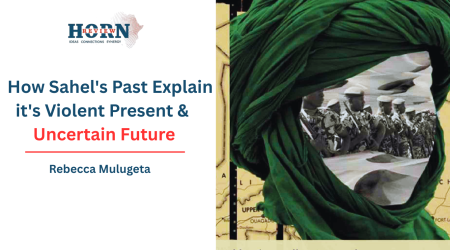
20
Feb
Tariffs and Turmoil: How Trump’s Trade War Could Undermine Development in the Horn of Africa
President Trump’s recent tariff measures, as officially detailed in a White House fact sheet released in early 2025, have reignited a trade war that is not only redrawing global economic relations but also signaling a broader political realignment. These protectionist policies play a crucial role in the United States’ foreign policy by prioritizing domestic economic interests and leveraging trade as a tool for political influence. Although designed to secure domestic gains and manifest an “America First” agenda, the cumulative political costs of these measures threaten to destabilize global trade relations and stifle development in strategically important regions like the Horn of Africa.
During his second term, President Trump reintroduced aggressive tariff measures as part of his “America First” policy. The administration imposed a 25% tariff on imports from Canada and Mexico (with a reduced rate for Canadian energy) and a 10% tariff on Chinese goods. In response, both Canada and Mexico announced retaliatory tariffs on U.S. products, and negotiations led to temporary pauses in these measures as each side sought to secure favorable concessions.
Trump’s tariff policy is part of a long-lasting tradition among Republicans of using protectionism as a tool of national sovereignty. As analyses from outlets like the Financial Times and the Tax Foundation point out that these measures are not merely economic instruments; they are also weapons of diplomacy. By imposing significant tariffs, the administration aims to pressure trading partners to respond on issues including border security and intellectual property rights. however, the subsequent trade disruptions and retaliatory tariffs imposed by Canada and Mexico illustrate a political price that may go far beyond the prospect of immediate economic benefits.
On the global political front, the rise of U.S. protectionism has been a wake-up call, letting others know that Washington is stepping back from its traditional role in multilateral trade and diplomatic engagement. The economic uncertainty of these tariffs has important political implications. As corporations face higher costs and global markets encounter greater volatility, U.S. economic engagement in the form of international aid and trade, a long-standing instrument of diplomatic influence, is likely to diminish.
The pivot is especially significant for regions like the Horn of Africa, where long-standing U.S. trade support and development assistance have supported both economic stability and diplomatic stance. With American interests in global trade declines under the tariff war, the African nations might find themselves turning to alternative partnerships. The danger is that countries in the Horn, which are already susceptible to economic shocks, could begin to shift even more toward partners like China, whose aggressive infrastructure and investment strategies provide immediate relief. However, this typically carry strategic dependencies and are less advantageous for long-term sustainability.
Trump’s recent proposal to impose tariffs on European Union imports marks yet another expansion of his “America First” strategy, this time, to one of America’s most consistent allies. The goal of this proposal is to use economic pressure to potentially obtain concessions on topics before the EU such as defense spending and regulatory synchronization, effectively using tariffs as a bargaining chip. However, the risks of these measures would backfire by destabilizing a long-standing transatlantic trade framework, escalating market uncertainty and inviting reprisals from European partners. Thus, this strategy both undermines the cooperative foundations of the global economic system and, more broadly, points to a move towards unilateralism that will have consequences far beyond the economic realm.
Beyond the political ramifications, the economic impact on the Horn of Africa could be profound. The instability created by the tariff war might increase the price of essential imports in areas like technology, energy, and industrial inputs. Thereby putting a strain on the already limited fiscal resources of the region’s economies. Furthermore, a decline in U.S. economic engagement, combined with the Horn’s potentially accelerated pivot toward alternative partners such as China or UAE, could deprive the region of essential financing and technical assistance or force it to accept onerous conditions. This trade volatility could disrupt regional supply chains, raise inflation and slow economic growth, making it all the more difficult for countries trying to sustain development amid the fierce competition of an increasingly global economy.
For Ethiopia, the stakes are particularly high. The nation’s ambitious industrialization and green transition initiatives, such as establishing industrial parks and modernizing its infrastructure, depend on stable trade flows and strong external support. As the U.S. recalibrates its place on the international stage, Ethiopia was resolute to meet the two-faced challenges of declining export revenues and shrinking foreign direct investment. These setbacks are not merely economic; they represent a significant political reorientation that is likely to slow Ethiopia’s progress toward a sustainable and modern economy.
This course of action by the Trump administration risks causing a broader structural realignment of international relations. Through a protectionist agenda, the U.S potentially weakens its long-established diplomatic alliances and multilateral frameworks. As the traditional partners of U.S. like Canada and Mexico respond with retaliatory measures, emerging economies specially in Africa may be forced to look for alternative coalitions. This Political occurrence could drastically weaken American soft power and helps to accelerate Chinese influence and the rise of regional blocs on the continent. The resulting division might further destabilize the long-held equilibrium that has both supported the United States’ favor in diplomatic leverage and global economic cooperation.
To reduce these unintended consequences, U.S. policymakers should reassess the wider political implications of their trade approaches. While tariffs can protect domestic interests, overreliance on unilateral measures risks diplomatic isolation and relinquishes influence in key regions. A recalibrated strategy that merges fair multilateral trade with sustained international engagement that would potentially strengthen U.S. leadership. For African countries, diversifying economic partnerships and strengthening regional integration can help reduce vulnerability to external shocks. In the modern global landscape, particularly in politically volatile areas such as the Horn of Africa, running a strategy of collaborative diplomacy and development assistance, rather than a stiff economic tool, will be appropriate and sustainable to ensure international influence on a global scale.
By Surafel Tesfaye, Horn Review, Researcher










